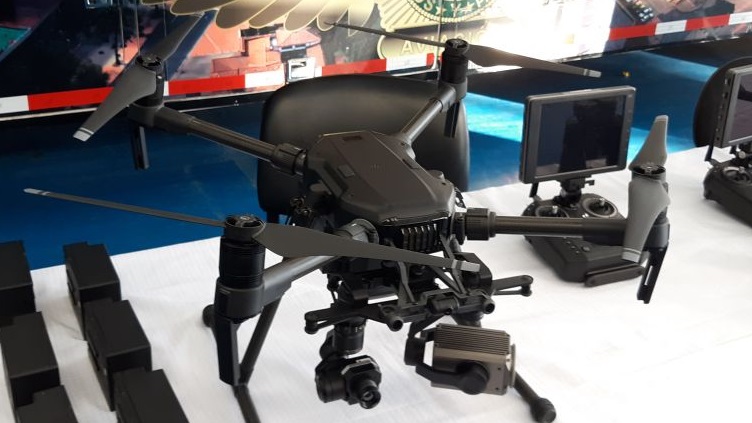Blog entry by Bruce McPherson

The US fiscal year 2020 (FY 2020) National Defense Authorization Act (NDAA) bars the Pentagon from operating, acquiring, or renewing contracts for Chinese unmanned aerial vehicles (UAVs) and associated components and services.
The legislation, signed into law on 20 December, specifies a Chinese UAV as one that is either built in the nation or by a company domiciled there. It also covers unmanned aircraft that use flight controllers, radios, data transmission devices, cameras, gimbals, ground control systems (GCS), or operating software either manufactured in China or by a China-headquartered company. The law applies to UAVs that use network connectivity or data storage either located in China or by a Chinese company.
The defence secretary is allowed an exception if the operation or procurement is for counter-UAV (C-UAV) surrogate testing and training. An exception is also allowed for electronic warfare (EW) and information warfare operations, testing, analysis, and training.
The defence secretary may also waive the provision on a case-by-case basis if he or she certifies to the congressional defence committees that the operation or procurement of Chinese UAVs, equipment, or services are required in the national interest of the US.
The Pentagon did not return a request for comment prior to publication. DJI spokesperson Adam Lisberg said on 30 December that although the company does not design or market its products for Pentagon use, it opposes the NDAA provision because it restricts the use of UAV technology based solely on where it is made and does nothing to promote cyber and data security.
Lisberg said DJI products that are designed for use by the federal government have been tested and validated by US cyber-security consultants, federal agencies, and the Idaho National Laboratory.
Pat Host, Washington, DC - Jane's International Defence Review